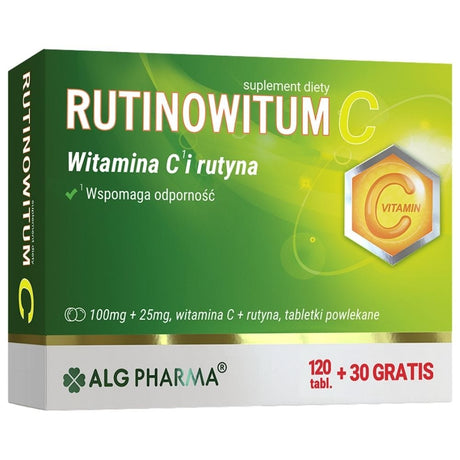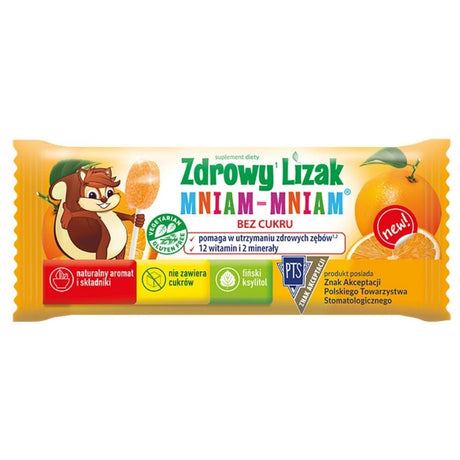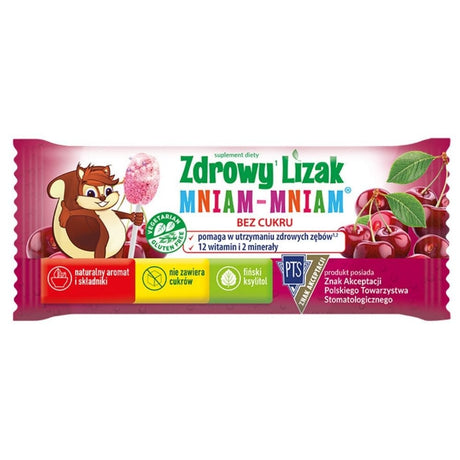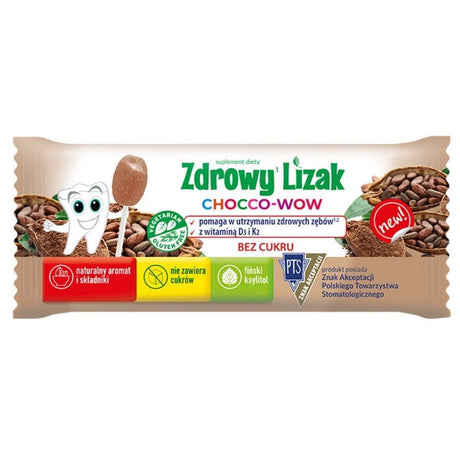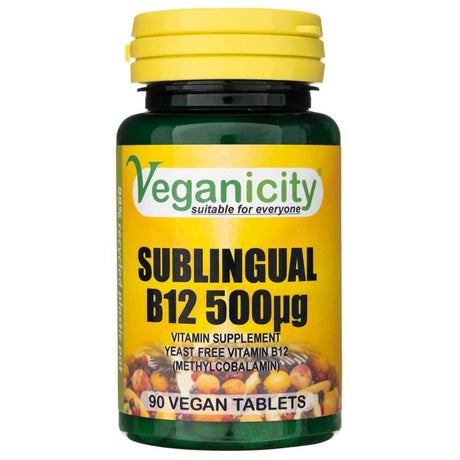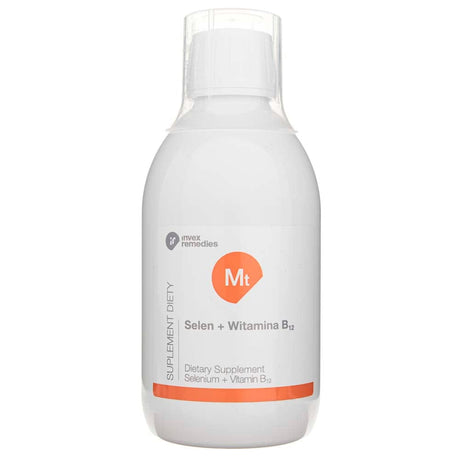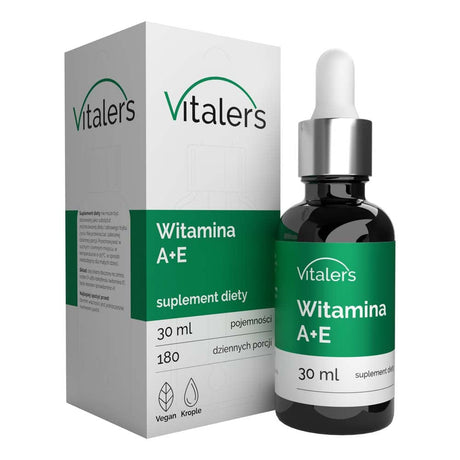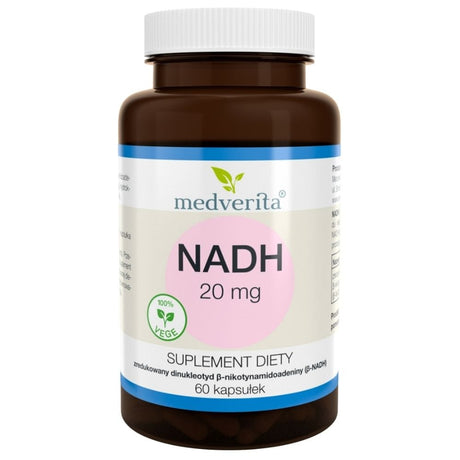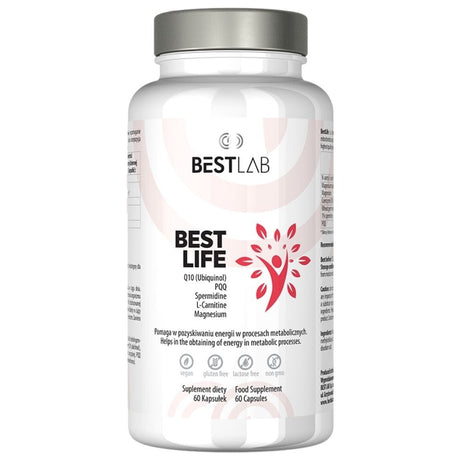Olimp
Olimp Gold-Vit for Men (Vitamins and Chelated Minerals) - 30 Tablets
Regular price €11.29Unit price€0.38 eachSolgar
Solgar Ester-C plus Vitamin C 500 mg - 50 Veg Capsules
Regular price €9.29Unit price€0.19 eachALG Pharma
ALG Pharma Rutinowitum C, Vitamin C and Rutin - 150 Tablets
Regular price €2.79Unit price€0.02 eachActivlab
Activlab Isoactive Isotonic with Ginseng, Grapefruit - 31,5 g
Regular price €0.39Unit price€12.38 /kgActivlab
Activlab Isoactive Isotonic with Guarana, Orange - 31,5 g
Regular price €0.39Unit price€12.38 /kg7Nutrition
7Nutrition Vitamin D3 4000 IU - 120 Capsules
Sale price €4.74 Regular price €4.99Unit price€0.04 eachStarpharma
Starpharma Healthy Lollipop with 12 Vitamin, Orange - 6 g
Regular price €0.49Unit price€81.67 /kgStarpharma
Starpharma Healthy Lollipop with 12 Vitamin, Cherry - 6 g
Regular price €0.49Unit price€81.67 /kgStarpharma
Starpharma Healthy Lollipop with Vitamin D3 and K2, Cocoa - 6 g
Regular price €0.49Unit price€81.67 /kgPharmovit
Pharmovit Inositol Max 750 mg - 60 Capsules
Sale price €11.33 Regular price €12.59Unit price€0.19 eachVeganicity
Veganicity Vitamin B12, Sublingual 500 mcg - 90 Tablets
Regular price €10.19Unit price€0.11 eachInvex Remedies
Invex Remedies Selenium + Vitamin B12 - 300 ml
Regular price €17.59Unit price€58.63 /L
Understanding the Vital Role of Vitamins in Health and Wellness
Vitamins are essential organic compounds that play a crucial role in maintaining optimal body function. These vital nutrients are indispensable for various physiological processes, and their deficiencies can lead to significant health issues. When the body lacks sufficient vitamins, individuals may experience general fatigue, mood disturbances, and weakened immunity, making them more susceptible to illnesses.
While fruits and vegetables serve as primary sources of vitamins, certain nutrients are more prone to deficiency. For instance, vitamin D, synthesized by the body through sunlight exposure, becomes scarce during fall and winter months. In such cases, dietary supplements can effectively help maintain adequate vitamin levels.
Classification of Vitamins: Water-Soluble and Fat-Soluble
Vitamins are categorized into two main groups based on their solubility:
- Water-soluble vitamins: This group includes biotin, pantothenic acid, and B-complex vitamins such as B12 and B1. These vitamins are associated with metabolic changes in tissues and act as coenzymes.
- Fat-soluble vitamins: This category comprises vitamins A, K, and E. Unlike their water-soluble counterparts, these vitamins have regulatory functions and tend to accumulate in the body.
The Importance of Vitamins During Pregnancy
Pregnancy is a critical period that demands a stable and balanced diet to support the developing fetus. While obtaining vitamins from food sources is ideal, maintaining a perfect diet can be challenging. As a result, many expectant mothers turn to vitamin supplements to ensure adequate nutrient intake.
Key vitamins for pregnant women include:
- Vitamin D3: Deficiency during pregnancy is associated with increased risks of preterm birth, low birth weight, and pre-eclampsia.
- Folic acid: Insufficient levels can lead to anemia and increase the risk of neural tube defects. Proper supplementation can reduce these risks by up to 70%.
Who Benefits from Vitamin Supplementation?
The decision to take vitamin supplements depends on various factors and individual needs. Specific groups who may benefit from vitamin supplementation include:
- Individuals with conditions that impair vitamin absorption
- People following diets that may not meet daily vitamin requirements
- Athletes engaged in intense physical activities requiring additional nutritional support
- Pregnant women with increased nutrient demands
Vitamin complexes offer an efficient way to address deficiencies and alleviate associated symptoms. High-quality supplements in tablet or capsule form ensure optimal absorption, helping to stabilize vitamin levels within the body and support overall health and well-being.















